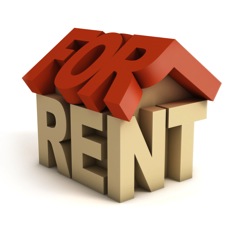Landlord Tenant Tort Liability
When someone owns a property, they have a responsibility to make sure it’s reasonably safe for others to use, and that includes landlords. If a visitor, guest, or tenant gets hurt because of unsafe conditions that were caused by negligence, a concept called premises liability comes into play and it can be used to hold landlords liable for those injuries.
What Michigan Law Says About Landlord Tort Liability for Injuries
At common law, before Michigan adopted statutes and codified law in this area, a landlord owed no duty to a tenant’s invitees. Meaning, landlords were completely free from liability. They merely owned the land they rented and if someone was injured on the property, then it was the person in legal control of the property that had liability.
This is not the case today. Landlords have 5 areas where they are responsible for torts that occur on their premises:

- Latent defects: These are hazards that the landlord knows about or reasonably should know about. The landlord doesn’t need to fix the problem, but they have a duty to disclose the problem if it’s something that might not be immediately obvious to people before agreeing to rent a space.
- Short-term lease of a furnished dwelling: This one applies to businesses like hotels and motels. What it means is that a landlord has a responsibility to keep the premises well maintained so that unsafe conditions don’t develop. And if a guest is injured because of a condition caused by poor maintenance, the property owner would be liable.
- Common areas: Since landlords are responsible for maintaining common areas like hallways and lobbies, they are liable if someone is injured in those common areas because of a hazard caused by poor upkeep.
- Negligent repairs: When landlords do repairs to their property, it’s important that those repairs be done to meet reasonable standards for quality. This is a subjective standard, not an objective standard. We don’t care about what the landlord thought about their repair, we care about the inevitable consequence of them doing a poorer job than that of a reasonable landlord. For example, if a landlord tries fixing some faulty wiring by themselves instead of hiring an electrician and their repair ends up starting a fire, the landlord would be liable.
- Public use: This is another one that applies to businesses like hotels and motels, as well as other locations that are frequently used by others, like event venues. In this situation, the landlord must know of the defect, know that the tenant won’t fix the defect, and know that the public is using the location. For example, if you rent a banquet hall for a wedding reception, there’s no expectation that you would be responsible for repairing any safety hazards on the premises. So if there’s an injury during the reception, then liability falls on the landlord.
Get Help with Michigan Premises Liability Cases
Goodwin & Scieszka has been battling premises liability claims in Detroit and Metro Detroit for over 30 years. If you’ve been injured due to someone else’s negligence, contact our firm today. We’re here for you when you need us most.

If you have been injured in any type of accident, contact us immediately by phone or email. You pay nothing until we take your case to trial or settle. With over 30 years of litigation experience representing the “little guy” against the largest insurance companies, corporations, and hospitals, we’ll get you the money you deserve.
Our personal injury lawyers have experience handling a wide range of cases and have been named Michigan Super Lawyers for the last eight years and Dbusiness’s Top Lawyers for the last three. Whatever your accident or injury, we are ready to Win Your Case!
Call us at 1-888-GOODWIN (466-3946)






